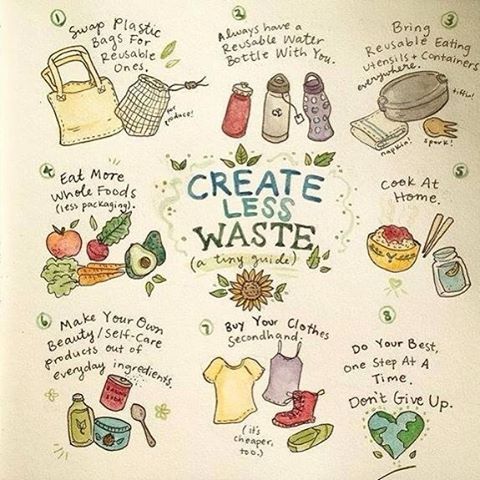
Do you believe that everyone should recycle? Do you recycle every day?
What If we told you that there is a lifestyle which is far better than the recycling lifestyle? And what if we told you that your grandparents used to follow it? What if we told you that this lifestyle has minimum impact on the environment? And that there are 2 women who are following it as well! Sounds interesting!! Read below to know more.
An increasing number of people are becoming conscious of producing waste and the impact it has on the environment. Everyone is concentrating on recycling however one should strive to be a zero waster.
What is zero waste?
Zero Waste is a philosophy that encourages the redesign of resource life cycles so that all products are reused.
Currently, we are living in a linear economy i.e. everything that we consume is designed to end in the dustbin. Recycling economy is not a solution but merely a tool to delay the inevitable. Zero Waste also is known as a circular economy is what we should endeavour for. In a zero-waste economy, no waste is produced by humans. Everything that the consumer uses is reused in some manner or other. This means that a zero waster will value everything that is around them and will completely stop using plastic and other disposable items and instead focus on reuse.

Unconsciously Indians have always been practising the philosophy of zero wasters. If you want to become zero wasters just simply go back to the practices and the lifestyle that our grandparents used to follow and you’ll master the art of circular economy.
You might think that it’s tough. But two superwomen have almost championed it. Let’s meet the two zero wasters in India who are currently living this art – Durgesh Nandini and Sahar Mansoor.

Durgesh Nandini started this journey by segregating her dustbin to understand the waste packing material. Soon she started swapping the plastic bags for unbleached cotton bags and steel containers for taking away food and buying liquids. “Minimalism is the route to achieve zero waste,” she says.
Durgesh says she is not a hundred per cent zero waster yet because the infrastructure in metro cities makes this lifestyle extremely difficult to follow. However, since she has started following this lifestyle she has experienced true contentment and it has brought more happiness than material benefits.
Sahar Mansoor currently works as an analyst at SELCO and runs a zero-waste startup on the side named Bare Necessities. She says that ever since she has started living the zero waste philosophy, she has experienced multiple benefits. “I am healthier since I no longer buy processed foods. I save money because I make my own personal and home care products. I am happier because I am prioritizing just being and experiencing rather than acquiring and buying,” she says.
Sahar Mansoor believes that living in zero waste has its own advantages. Zero waste supports small entrepreneurs and the local economy. There is more scope for homemade tinctures, DIYs, traditions – all things zero waste philosophy champions.
If you really care about the environment and would like to protect it then Sahar believes that Zero Waste philosophy is the perfect place to begin. “It’s not time-consuming, it’s not expensive and it’s not just for granola hippie people. Your grandmother was probably a zero waster,” says Sahar.



